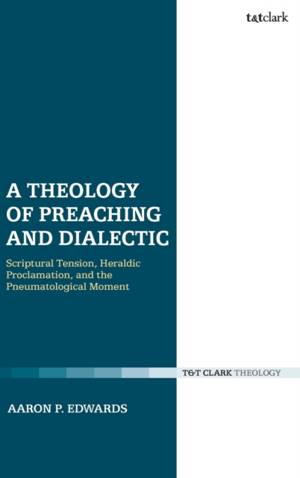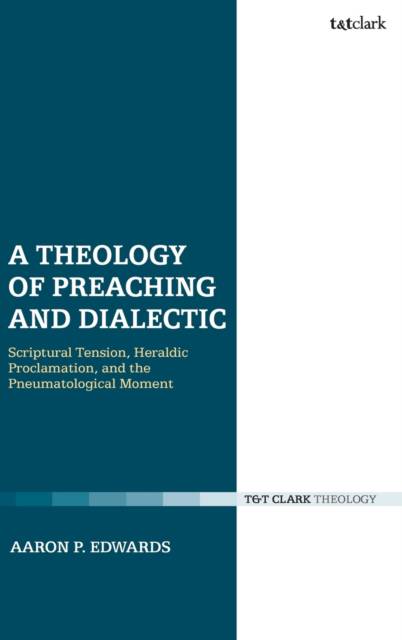
- Afhalen na 1 uur in een winkel met voorraad
- Gratis thuislevering in België vanaf € 30
- Ruim aanbod met 7 miljoen producten
- Afhalen na 1 uur in een winkel met voorraad
- Gratis thuislevering in België vanaf € 30
- Ruim aanbod met 7 miljoen producten
Zoeken
A Theology of Preaching and Dialectic
Scriptural Tension, Heraldic Proclamation and the Pneumatological Moment
Aaron Edwards
Hardcover | Engels
€ 296,95
+ 593 punten
Omschrijving
How does the preacher know what God might say now based upon the many things God said then? Preachers and theologians throughout Christian history have grappled with Scripture's diverse emphases alongside the urgent task of declaring the authoritative Word of God in the contemporary pulpit. Aaron Edwards offers a new way of engaging with this problem, by exploring the theological relationship between biblical dialectics and heraldic proclamation.
Edwards highlights the theological necessity of dialectical variety, without forfeiting assertiveness in the prophetic moment of preaching. A vast array of key voices from the theological tradition are drawn upon - including Augustine, Aquinas, Eckhart, Luther, Calvin, Hegel, Kierkegaard, Chesterton, Barth, Bultmann, Tillich, Ebeling, and others - to navigate the connection between Scriptural unity, clarity, and paradoxical plurivocality, leading to a nuanced account of dialectic. Applying this to the homiletically neglected concept of 'heraldic' confidence in preaching, Edwards examines the theological possibility of preaching in light of dialectical complexity via its 'prophetic' dimension. He shows how the uniquely revelatory relationship of Word and Spirit enables Scriptural illumination, prophetic discernment, and dialectical decisiveness in the 'momentary' encounter which undergirds all Christian proclamation.
Edwards highlights the theological necessity of dialectical variety, without forfeiting assertiveness in the prophetic moment of preaching. A vast array of key voices from the theological tradition are drawn upon - including Augustine, Aquinas, Eckhart, Luther, Calvin, Hegel, Kierkegaard, Chesterton, Barth, Bultmann, Tillich, Ebeling, and others - to navigate the connection between Scriptural unity, clarity, and paradoxical plurivocality, leading to a nuanced account of dialectic. Applying this to the homiletically neglected concept of 'heraldic' confidence in preaching, Edwards examines the theological possibility of preaching in light of dialectical complexity via its 'prophetic' dimension. He shows how the uniquely revelatory relationship of Word and Spirit enables Scriptural illumination, prophetic discernment, and dialectical decisiveness in the 'momentary' encounter which undergirds all Christian proclamation.
Specificaties
Betrokkenen
- Auteur(s):
- Uitgeverij:
Inhoud
- Aantal bladzijden:
- 264
- Taal:
- Engels
Eigenschappen
- Productcode (EAN):
- 9780567678560
- Verschijningsdatum:
- 12/07/2018
- Uitvoering:
- Hardcover
- Formaat:
- Genaaid
- Afmetingen:
- 156 mm x 234 mm
- Gewicht:
- 544 g

Alleen bij Standaard Boekhandel
+ 593 punten op je klantenkaart van Standaard Boekhandel
Beoordelingen
We publiceren alleen reviews die voldoen aan de voorwaarden voor reviews. Bekijk onze voorwaarden voor reviews.








